Underage Drinking and Possession of Alcohol in North Carolina
February 25th, 2011 In North Carolina, laws concerning the sale, possession, and consumption of alcoholic beverages are contained in N.C.G.S. Chapter 18B entitled “Regulation of Alcoholic Beverages.” (§§ 18B-100 – 18B-1308) and (§§ 18B-300 – 18B-399). Convictions for most violations of these provisions are subject to punishment for either a class one misdemeanor (punishable by a maximum of 120 days in jail) or a class two misdemeanor (punishable by a maximum of 60 days in jail). Further, a conviction for a violation of 18B-302(c), (e), or (f) will result in the person’s NC drivers license being revoked for one year. See N.C.G.S. § 20-17.3 entitled “Revocation for Underage Purchasers of Alcohol.”
In North Carolina, laws concerning the sale, possession, and consumption of alcoholic beverages are contained in N.C.G.S. Chapter 18B entitled “Regulation of Alcoholic Beverages.” (§§ 18B-100 – 18B-1308) and (§§ 18B-300 – 18B-399). Convictions for most violations of these provisions are subject to punishment for either a class one misdemeanor (punishable by a maximum of 120 days in jail) or a class two misdemeanor (punishable by a maximum of 60 days in jail). Further, a conviction for a violation of 18B-302(c), (e), or (f) will result in the person’s NC drivers license being revoked for one year. See N.C.G.S. § 20-17.3 entitled “Revocation for Underage Purchasers of Alcohol.”
Section 18B-302 provides that “the court shall file a conviction report with the Division of Motor Vehicles indicating the name of the person convicted and any other information requested by the Division if the person is convicted of any of the following: (1) A violation of subsection (e) or (f) of this section. (2) A violation of subsection (c) of this section. (3) A violation of subsection (b) of this section, if the violation occurred while the person was purchasing or attempting to purchase an alcoholic beverage. (4) A violation of subsection (a1) of this section. Upon receipt of a conviction report, the Division shall revoke the person’s license as required by G.S. 20-17.3.”
The relevant portions of the statutes prohibiting certain conduct are contained in § 18B-302 entitled “Sale to or purchase by underage persons,” which provide as follows:
(a) Sale. – It shall be unlawful for any person to: (1) Sell malt beverages or unfortified wine to anyone less than 21 years old; or (2) Sell fortified wine, spirituous liquor, or mixed beverages to anyone less than 21 years old. (a1) Give. – It shall be unlawful for any person to: (1) Give malt beverages or unfortified wine to anyone less than 21 years old; or (2) Give fortified wine, spirituous liquor, or mixed beverages to anyone less than 21 years old. (b) Purchase, Possession, or Consumption. – It shall be unlawful for: (1) A person less than 21 years old to purchase, to attempt to purchase, or to possess malt beverages or unfortified wine; or (2) A person less than 21 years old to purchase, to attempt to purchase, or to possess fortified wine, spirituous liquor, or mixed beverages; or (3) A person less than 21 years old to consume any alcoholic beverage. (c) Aider and Abettor. (1) By Underage Person. – Any person who is under the lawful age to purchase and who aids or abets another in violation of subsection (a), (a1), or (b) of this section shall be guilty of a Class 2 misdemeanor. (2) By Person over Lawful Age. – Any person who is over the lawful age to purchase and who aids or abets another in violation of subsection (a), (a1), or (b) of this section shall be guilty of a Class 1 misdemeanor. (e) Fraudulent Use of Identification. – It shall be unlawful for any person to enter or attempt to enter a place where alcoholic beverages are sold or consumed, or to obtain or attempt to obtain alcoholic beverages, or to obtain or attempt to obtain permission to purchase alcoholic beverages, in violation of subsection (b) of this section, by using or attempting to use any of the following: (1) A fraudulent or altered drivers license. (2) A fraudulent or altered identification document other than a drivers license. (3) A drivers license issued to another person. (4) An identification document other than a drivers license issued to another person. (5) Any other form or means of identification that indicates or symbolizes that the person is not prohibited from purchasing or possessing alcoholic beverages under this section. (f) Allowing Use of Identification. – It shall be unlawful for any person to permit the use of the person’s drivers license or any other form of identification of any kind issued or given to the person by any other person who violates or attempts to violate subsection (b) of this section.
However, just because you have been charged with underage drinking or any violation of the NC alcohol laws, or any law, doesn’t necessarily mean you will be convicted. Collins Law Firm has represented hundreds of people charged with violating the laws regarding the sale, possession, and consumption of alcohol since 1998, and in most cases, especially for first time offenders, we have been able to avoid convictions. Currently, in most cases for first time offenders, even if there is no solid defense, we are able to negotiate an agreement with law enforcement officer and the district attorney’s office to have the charges dismissed after the defendant completes a certain number of hours of volunteer service, or completing an class about alcohol and the laws regarding alcohol, or other requirements, or a combination thereof. In most cases where there is a solid defense, we are able to have the charges dismissed without our clients having to perform any community service or complete classes.
If you have been charged with any crime in Southeastern North Carolina, in or around Wilmington NC in New Hanover County, Brunswick County, or Pender County, and need a lawyer or attorney to represent you, call us for a confidential consultation at: 910-793-9000.

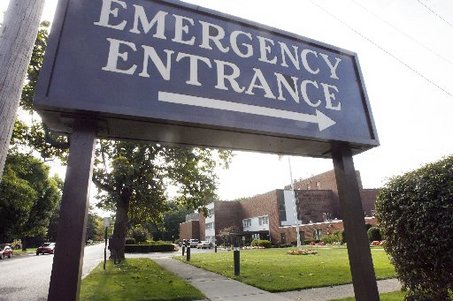 Since 1935, in North Carolina, there has been a statutory lien upon sums of money recovered as damages for personal injury claims. “This lien is in favor of any person, corporation, State entity, municipal corporation or county to whom the person so recovering, or the person in whose behalf the recovery has been made, may be indebted for any drugs, medical supplies, ambulance services, services rendered by any physician, dentist, nurse, or hospital, or hospital attention or services rendered in connection with the injury in compensation for which the damages have been recovered. Where damages are recovered for and in behalf of minors or persons non compos mentis, the liens shall attach to the sum recovered as fully as if the person were sui juris.” . N.C.G.S § 44-49.
Since 1935, in North Carolina, there has been a statutory lien upon sums of money recovered as damages for personal injury claims. “This lien is in favor of any person, corporation, State entity, municipal corporation or county to whom the person so recovering, or the person in whose behalf the recovery has been made, may be indebted for any drugs, medical supplies, ambulance services, services rendered by any physician, dentist, nurse, or hospital, or hospital attention or services rendered in connection with the injury in compensation for which the damages have been recovered. Where damages are recovered for and in behalf of minors or persons non compos mentis, the liens shall attach to the sum recovered as fully as if the person were sui juris.” . N.C.G.S § 44-49.
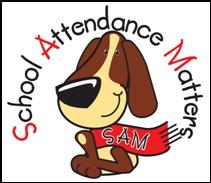 We understand why there has been outcry about the decision some schools made in having a make-up day on Martin Luther King, Jr. day, which is a federally designated holiday to honor a great American. North Carolina General Statutes § 115C-84.2 requires that a minimum of 180 days and 1,000 hours of instruction covering at least nine calendar months be scheduled and held by each North Carolina county.
We understand why there has been outcry about the decision some schools made in having a make-up day on Martin Luther King, Jr. day, which is a federally designated holiday to honor a great American. North Carolina General Statutes § 115C-84.2 requires that a minimum of 180 days and 1,000 hours of instruction covering at least nine calendar months be scheduled and held by each North Carolina county. The recent snow storm in the east coast caused school closings and court closings in Southeastern North Carolina including New Hanover, Brunswick, Pender, Columbus, Bladen, Sampson, Duplin, and Onslow Counties. The criminal and traffic charges which were set for the days court was closed are continued to the next court day for the charging officer. Most people with court dates which were set for the days court was closed will be notified by the clerk’s office about their next court date. Defendant’s with lawyers should consult with their attorney about their next court date.
The recent snow storm in the east coast caused school closings and court closings in Southeastern North Carolina including New Hanover, Brunswick, Pender, Columbus, Bladen, Sampson, Duplin, and Onslow Counties. The criminal and traffic charges which were set for the days court was closed are continued to the next court day for the charging officer. Most people with court dates which were set for the days court was closed will be notified by the clerk’s office about their next court date. Defendant’s with lawyers should consult with their attorney about their next court date.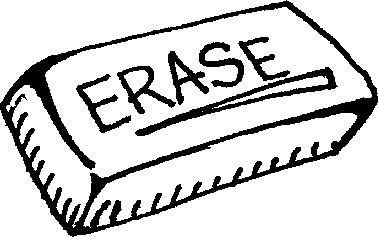 Anyone can be charged with a crime, and many people are wrongfully accused. Just because someone has been charged does not mean they are guilty. Criminal charges, even wrongful criminal charges, result in criminal records which can affect people for their entire life. Therefore, it is very important that people who are charged take the matter seriously and take appropriate steps to avoid or mitigate the negative consequences of criminal charges. In some cases, it is possible to have criminal records expunged which means the official public records are removed and destroyed by a process called expungement or expunction.
Anyone can be charged with a crime, and many people are wrongfully accused. Just because someone has been charged does not mean they are guilty. Criminal charges, even wrongful criminal charges, result in criminal records which can affect people for their entire life. Therefore, it is very important that people who are charged take the matter seriously and take appropriate steps to avoid or mitigate the negative consequences of criminal charges. In some cases, it is possible to have criminal records expunged which means the official public records are removed and destroyed by a process called expungement or expunction.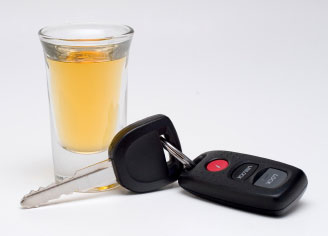 The holidays are upon us and most people are attending holiday parties and other holiday events. Many of these events offer alcohol and law enforcement is aware of that fact. Enforcement of traffic laws are often increased during holidays and this season is no exception. Last week alone, for example, there were over 70 people charged with driving while impaired (DWI/DUI) in New Hanover County, NC.
The holidays are upon us and most people are attending holiday parties and other holiday events. Many of these events offer alcohol and law enforcement is aware of that fact. Enforcement of traffic laws are often increased during holidays and this season is no exception. Last week alone, for example, there were over 70 people charged with driving while impaired (DWI/DUI) in New Hanover County, NC. 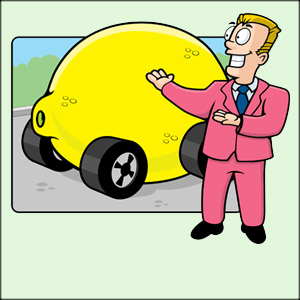 North Carolina’s New Motor Vehicles Warranties Act (§§ 20-351 – 20-353), also known as North Carolina’s Lemon Law (and federal Lemon Laws such as the Magnuson-Moss Warranty Act) provide for compensation for purchasers of defective vehicles. To qualify for relief under North Carolina’s Lemon Law, you must have purchased a new vehicle that has had multiple repair attempts under the manufacturer’s factory warranty, and it must be “seriously defective” and cannot be repaired in a “reasonable number of attempts.”
North Carolina’s New Motor Vehicles Warranties Act (§§ 20-351 – 20-353), also known as North Carolina’s Lemon Law (and federal Lemon Laws such as the Magnuson-Moss Warranty Act) provide for compensation for purchasers of defective vehicles. To qualify for relief under North Carolina’s Lemon Law, you must have purchased a new vehicle that has had multiple repair attempts under the manufacturer’s factory warranty, and it must be “seriously defective” and cannot be repaired in a “reasonable number of attempts.” Traffic tickets can be a lot more expensive than the fine and court costs stated on the ticket. For most traffic tickets, if you just pay off the ticket, you will be convicted of the charge, and you will be assessed points both on your driver’s license and on your insurance policy. Insurance points can be very expensive. They cause your insurance premiums to increase for three years, and for most policies, that will add up to thousands of dollars. Details about insurance points and the percentage of premium increases can be found
Traffic tickets can be a lot more expensive than the fine and court costs stated on the ticket. For most traffic tickets, if you just pay off the ticket, you will be convicted of the charge, and you will be assessed points both on your driver’s license and on your insurance policy. Insurance points can be very expensive. They cause your insurance premiums to increase for three years, and for most policies, that will add up to thousands of dollars. Details about insurance points and the percentage of premium increases can be found